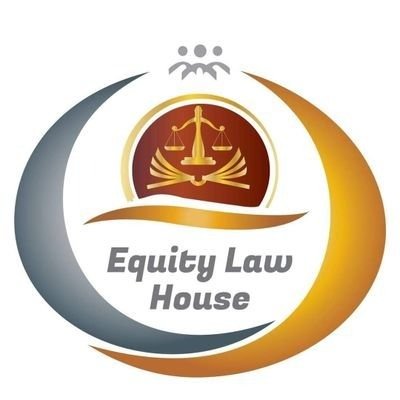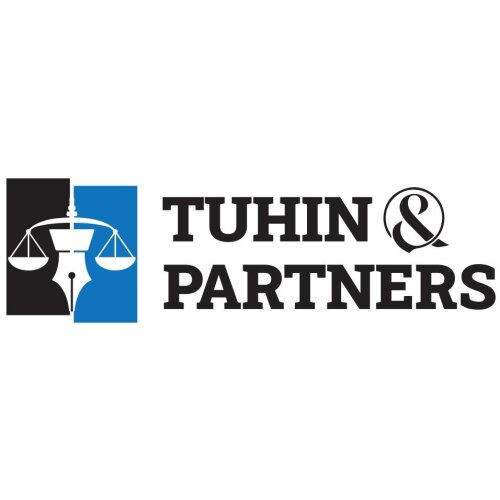Best Trusts Lawyers in Dhaka
Share your needs with us, get contacted by law firms.
Free. Takes 2 min.
List of the best lawyers in Dhaka, Bangladesh
About Trusts Law in Dhaka, Bangladesh
The Trust Act of 1882 governs Trust Laws in Bangladesh. The act details the policymakers' intent for Trust law, which is to govern, regulate, and maintain trusts and their associated duties, rights, and obligations. Trusts are primarily used by individuals in Dhaka as an effective management tool for estate planning, asset protection, and succession planning. Essentially, a body of trustees is put in control of assets for the benefit of a third party to create a trust.
Why You May Need a Lawyer
Trust law in Dhaka, or in Bangladesh more generally, is complex and multifaceted, requiring a strong understanding of the nuances of the legal landscape. A person may require a lawyer to help design their estate planning, maintain control over their financial future, and ensure welfare for their family. Lawyers specializing in this field can also help in minimising tax liabilities, protecting assets from potential creditors, and ensuring a smoother asset transition upon their demise.
Local Laws Overview
The central element guiding trust law in Dhaka is the Trust Act of 1882. Key aspects of this law include regulations around the creation, management, and dissolution of trusts. For example, it requires trusts to be created for a lawful purpose and allows revocation of trusts in specific conditions. Lack of clarity or insufficient certainty can render a trust void. The law also outlines the responsibilities of trustees and the rights of beneficiaries.
Frequently Asked Questions
What is a trust in legal terms?
A trust is a legal arrangement where the owner (Settlor) transfers legal ownership of assets to a person or an organization (Trustee), who manages that property for a third party's benefit (Beneficiary).
What is the difference between a will and trust in Bangladesh?
In a will, the settlor maintains ownership of all properties until death, while a trust may come into effect during the settlor's lifetime.
Can a trust be altered or revoked in Dhaka, Bangladesh?
Yes, but the flexibility to change or revoke a trust depends upon the terms of trust deeds. Some trusts, once formed, are irrevocable except on the occurrence of specific events.
What are the main responsibilities of a trustee?
A trustee must manage the trust following the legal stipulations in the trust deed, maintain clear records, and act in the best interest of the beneficiaries.
What are the rights of a beneficiary in a trust?
The beneficiaries have the right to receive benefits from the trust, right to proper administration, right to obtain information, etc.
What are the consequences of a breach of trust?
Breaches of trust may lead to removal, liability for losses, and legal action for recovery.
Can a trust be used to evade taxes in Bangladesh?
No, trusts should not be used for illegal purposes. Tax evasion is illegal and can result in hefty fines or jail time.
Are family trusts common in Dhaka?
Yes, family trusts are a common instrument used for estate planning and wealth management in Dhaka.
Can a foreigner become a trustee in Bangladesh?
Yes, as long as they meet certain requirements, a foreigner can serve as a trustee in Bangladesh.
Is a lawyer necessary to set up a trust?
While it's possible to set up a trust without legal guidance, it's recommended to seek advice from a lawyer due to its complicated nature.
Additional Resources
Apart from the various legal firms and advocates specialized in trust law, the Ministry of Law, Justice and Parliamentary Affairs, Bangladesh Law Commission, and Bangladesh Bar Council provide resources that can be helpful for someone seeking legal advice pertaining to trusts.
Next Steps
If you need legal assistance, it's recommended to consult with a legal expert in Trust law. Prior to consultation, have a clear understanding of your objectives for setting up a trust. Actively engage with your advisor, asking questions about different options, tax implications, and trustee selection.
Lawzana helps you find the best lawyers and law firms in Dhaka through a curated and pre-screened list of qualified legal professionals. Our platform offers rankings and detailed profiles of attorneys and law firms, allowing you to compare based on practice areas, including Trusts, experience, and client feedback.
Each profile includes a description of the firm's areas of practice, client reviews, team members and partners, year of establishment, spoken languages, office locations, contact information, social media presence, and any published articles or resources. Most firms on our platform speak English and are experienced in both local and international legal matters.
Get a quote from top-rated law firms in Dhaka, Bangladesh — quickly, securely, and without unnecessary hassle.
Disclaimer:
The information provided on this page is for general informational purposes only and does not constitute legal advice. While we strive to ensure the accuracy and relevance of the content, legal information may change over time, and interpretations of the law can vary. You should always consult with a qualified legal professional for advice specific to your situation.
We disclaim all liability for actions taken or not taken based on the content of this page. If you believe any information is incorrect or outdated, please contact us, and we will review and update it where appropriate.










